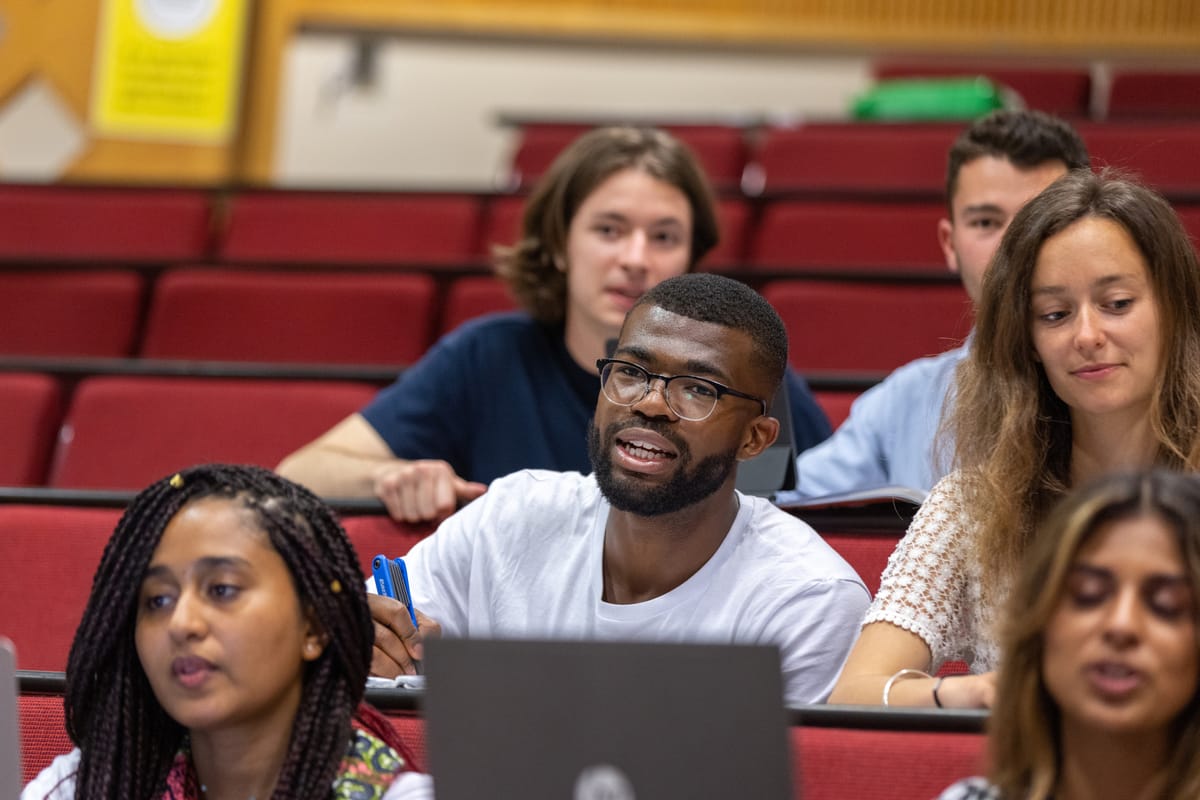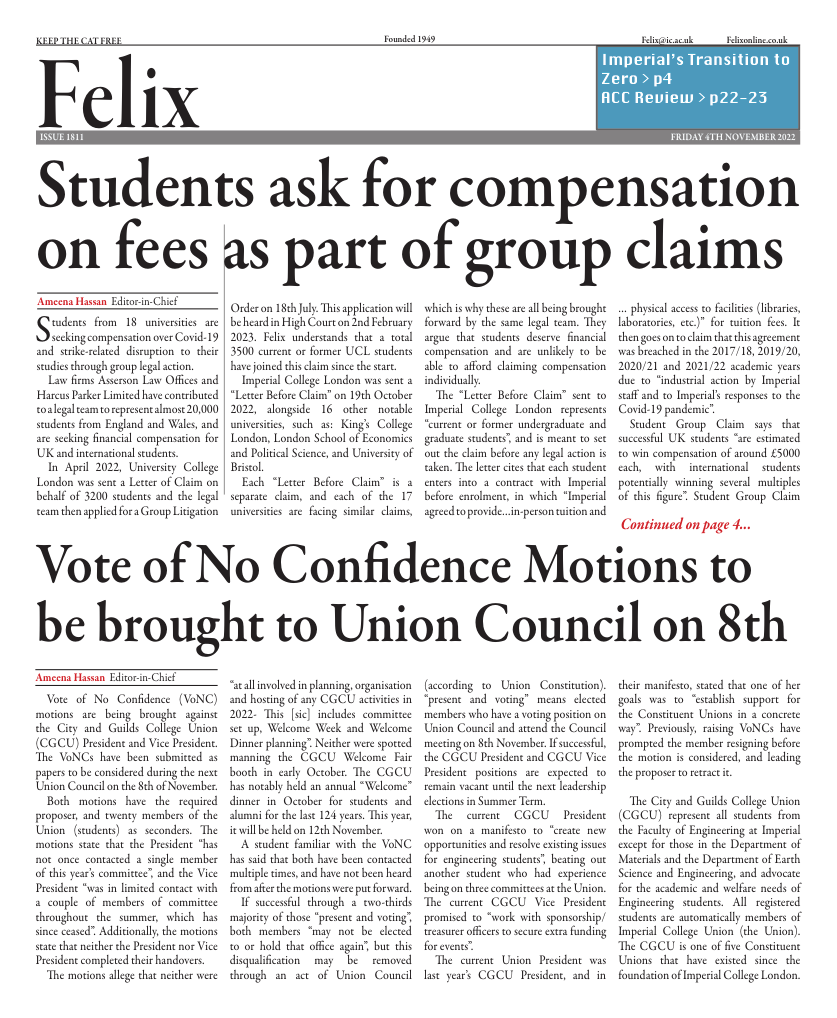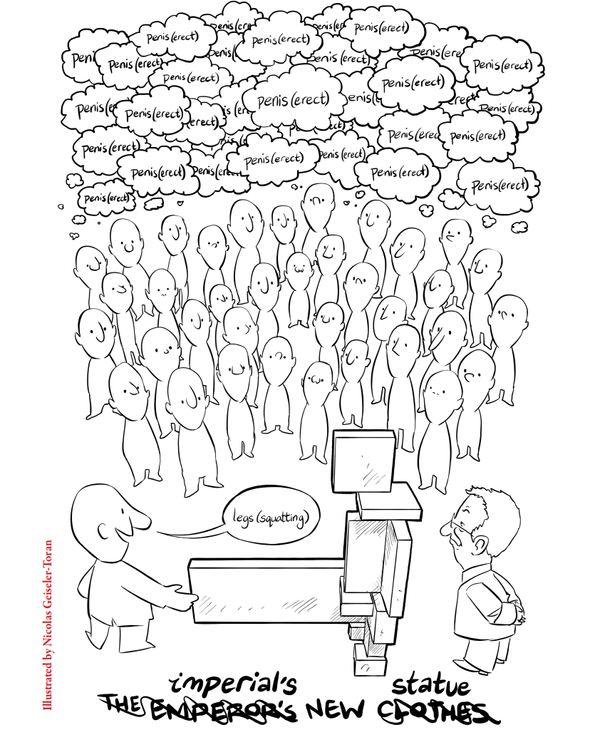Can you teach STEM students about finance in an interesting way?

I have been at Imperial for a while and one thing that sticks out to me is the lack of enthusiasm in the way things are taught. Lecturers who may be world experts in their field often find it difficult to convey their excitement and passion for the lecture courses they teach. Often, this is out of a pure distraction caused by their own research that is responsible for bringing funding to the college.
Sometimes, however, there might be a handful of lecturers who really put their ideas to paper and try to make the experience more enjoyable. One of the newcomers in this field is not actually a lecturer but actually a society, namely the college’s Investment Society. Given the STEM-dominated nature of the college, students like you and I often find it perversely difficult to understand anything that is going on in the economy or in finance. What does it mean for the dollar to strengthen against the pound? Why is a tax cut not going to be good for the economy in the light of inflation making our lives more challenging every day?
The Investment Society has spent the last two years working on adapting its own lecture course, the Securities Education Certificate (jokingly abbreviated to the American stock police, the SEC) in a bid to level the playing field against the Oxbridge, LSE, and UCL economists so that Imperial STEM students, regardless of their field of study, can develop an interest in investment and finance with the potential to develop a career in the industry.
Developed by an ambitious group of lecturers led by one former Felix column editor, Ahmad Danesh, they have cracked not only a solution to the financial illiteracy that all students face across the world, but they have also found a way to engage the audience and make the content so simple to understand, you would struggle to remember a time when a lecture was so easy to enjoy. When the content was so easy to grasp the first time round that you would not need to Google a single concept because the lecturer made sure that they knew what you would think and what you were going to ask in the back of your mind.
I went to the lecture last week on macroeconomics and foreign exchange just to see what the hype really was about. I had heard that 650+ students had signed up (making it the biggest lecture course on campus) but what was different was the clarity and the entertaining nature of the lecturers themselves. Ahmad was discussing the idea of a basket of goods being used as a benchmark to calculate the rate of inflation through something called the Consumer Price Index (the CPI). To illustrate the point, he brought an entire basket from Tesco’s with bread, cereal, and milk inside it to showcase what the basket really meant… a basket! He talked about the different currencies that you could use to pay for the basket and even light-heartedly made a joke about the Turkish Lira losing its value by more than half every day thanks to the current rate of inflation exceeding well above 100%, according to experts.
They have cracked not only a solution to the financial illiteracy that all students face across the world, but they have also found a way to engage the audience and make the content so simple to understand
As with all lectures, it was not all perfect. Technical issues in Clore meant there were delays thanks to the microphone and the speaker was rooted to the computer desk without being able to walk to the screen and point at graphs that were visible on the screen. The market update delivered by an analyst in the Investment Society’s capital fund, QT Capital, could have benefited from actual slides that I could take home and read in my own time. Although that is a very small point to make, since the updates were so good that in the time that Ahmad lectured about foreign exchange, the Japanese Central Bank had announced an intervention, so I could immediately apply what I had learned to an event that had not even happened before the start of the lecture. Clore was also a stuffy lecture theatre and I did not appreciate the lack of air conditioning ,but the lecture itself was quite fun overall.
I spoke to Ahmad at the end of the lecture since the other lecturer was away at another event entirely. He said that his time as a Chemistry student really helped him understand things better and develop an appreciation for how to learn a difficult concept, which were ideas he brought to this eight-year-old lecture course. He does say that while registration to the SEC is now closed, he will be back with the Imperial Blockchain Group to teach quantitative trading to all STEM students for 12 weeks from January 2023. If the SEC is anything to go by, it will be exciting to see what Ahmad and the Blockchain Group do to revolutionise teaching even more next year!








